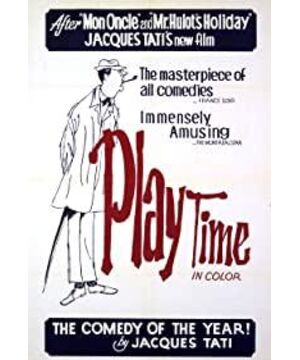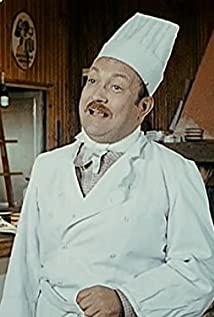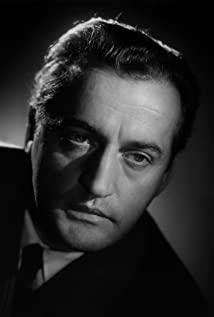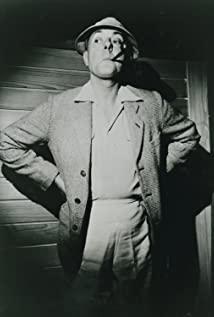This film was filmed in 1967 and is a classic written, directed, and acted by the famous French comedy master Jacques Tati. The film does not have too much dialogue, and even the basic storyline is very thin. It is purely relying on the soundtrack and the physical performance of the actors to promote the development of the plot. It will show the grand scene of people of all colors gathered here during the Paris World Expo. . Mr. Yu Luo, played by Jacques Tati, is a new countryman. He is tall, with a windbreaker, a small hat, and an umbrella. He stumbles all the way through this international modern metropolis, watching with cold eyes. Everything.
The most interesting part of this movie is that you don't know where in which scene you will capture the details that the director cleverly placed. Putting aside those obscure metaphors, sometimes just because of the huge amount of information in a shot and the large number of actors in the group, you have to rewind several times to watch it intact. The labyrinth-like office buildings, the light and shadow refracted by the glass curtain walls, the novel products at the World Expo, and the nightclubs full of design flaws, are full of irony to modern urban life. Numerous tourist groups, photojournalists with peculiar appearances, old comrades-in-arms with posturing, ugly alcoholics, waiters with torn pants, American tyrants who pay for others... all kinds of interesting characters are interspersed and converged into a modern picture. A huge picture of urban life. Our audience is more like a coffee shop on the street, slouching on the sofa by the window, looking at all kinds of passers-by on the street casually, sometimes staring, immersed, sometimes dazed, and withdrawn. No harm is done.
Perhaps there are not many people who know Jacques Tati, he is one of the few humorous masters in film history who can be compared with Charlie Chaplin. However, unlike Chaplin’s exaggerated and funny harlequin performance, Jacques Tati uses a more realistic lens to capture scenes of daily life, expressing ubiquitous humor through an imperceptible perspective. It is a film that truly pursues details. People are known as the "discoverers" of great modern comedies.
It can be said that Tati has taken "details to win" to the extreme in this work. Let us first take a look at the following set of amazing numbers. In order to achieve the desired effect of this film, Tati, who is nearly sixty years old, resolutely mortgaged the property and film rights under his own name. It took 3 years to build a 15,000 square meter building on a ruin in the outskirts of Paris. The virtual city was later named "Tativille" (Tativille). This huge project consumed a total of nearly 50,000 cubic meters of concrete, 4,000 square meters of plastic, 31,000 square meters of wood, and 1,100 square meters of glass. As Tati himself said, this virtual city is the "real protagonist" of this masterpiece.
In this film, Tati incorporates more people’s thinking about his own lifestyle, so the style is far less than the secular and funny of his previous works. As you can imagine, he encountered Waterloo in his acting career and not only lost it. The mortgaged property was lost, and the production company went bankrupt. What's more, in the following years, no production company was willing to invest in filming for him. This time he was defeated and even lost the chance of a comeback, but he didn't seem to agree. "This is exactly the movie I want to make...Although I have suffered huge physical and economic losses for it, it is really the movie I want to make," said this stubborn and somewhat cute old man, from the line between the lines. It can be read, he is enjoying his own PLAYTIME so much.
Film textbook-"Four Hundred Strikes" director François Truffaut once described "Playing Time": "It seems to be a movie from another planet, where they make a movie in a completely different way. ". And Jacques Tati is just such a paranoid film "craftsman" who disdains to please the audience. He lets us know what the real film art is. Unfortunately, his unique acting skills and directing style have become a long-lost skill.
At the 2010 Berlin Film Festival, the cartoon "The Illusionist" (The Illusionist), based on a letter from Tati’s family, appeared in front of the world for the first time. Way, back to people’s sight. In Tati’s world, humor comes from every detail of life. Everyone is a potential comedian, but we didn’t notice it.
View more about Playtime reviews











